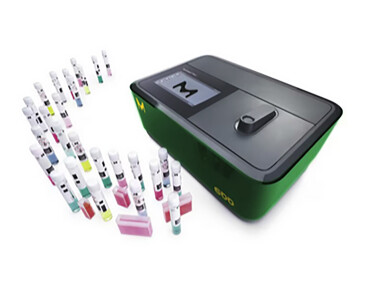Laboratory products
When Was the First Organ Transplant?
Mar 20 2018
On December 23 1954, just a few days before Christmas, Dr. Joseph Murray and Dr. David Hume led the world's first successful kidney transplant. It was performed at Boston's Brigham Hospital and saw a perfectly functional kidney transplanted from Ronald Herrick and rehoused in his identical twin, Richard.
Liver transplants aren't quite as successful as kidney operations, though advances in technology do mean that the donor no longer needs to be dead. Furthermore, doctors have discovered that it is possible to perform split-liver transplants and partial transplants, which means that one organ can be used to serve multiple recipients. While prior to 1983 liver transplant recipients were burdened with a meagre 30% one-year survival rate, a new immune-suppressing drug called cyclosporine has helped to push this up to 75% on three years.
A new era of robotic hearts
Hearts represent a whole new set of challenges, with South African cardiac surgeon Christiaan Neethling Barnard performing the first human-to-human transplant on December 3 1967. It was carried out at Cape Town's Groote Schuur Hospital, however the recipient, Mr Louis Washkansky, only survived for 18 days post-surgery. Today the outlook is much brighter, with the life-saving operation giving patients like John McCafferty 33 additional years of life.
Now, modern medicine is pushing the limits of the human body even further with the concept of artificial heart transplants. Also known as TAH, Total Artificial Heart surgery replacing the crucial organ with a prosthetic device that actively pumps blood throughout the body, just like a functional human heart. It was designed by Arizona based company SynCardia and is crafted from a special biocompatible plastic that helps prevent the risk of the body rejecting the TAH.
Are brain transplants a reality?
Of course, with the growing success of organ transplants people are starting to ask the ultimate question – will brain transplants ever be possible? Currently, there are no success stories, let alone human trials. A key challenge is the ability to re-connect nerve fibres from the brain to the native spinal cord of the recipient. This hasn't been mastered and is one of the key reasons why severe spinal cord injuries can irreversible. On top of the logistical challenges, experts estimate that the total cost of a brain transplant could climb into the US$13 million mark. There are also big ethical grey areas to consider.
Next generation lab equipment plays a pivotal role in organ transplants. With commentary from Mark Bosley, Business Support Manager at Suez, 'The Internet of Laboratory Equipment' explores how IoT technologies will benefit modern medicine.
Digital Edition
Lab Asia 31.6 Dec 2024
December 2024
Chromatography Articles - Sustainable chromatography: Embracing software for greener methods Mass Spectrometry & Spectroscopy Articles - Solving industry challenges for phosphorus containi...
View all digital editions
Events
Jan 22 2025 Tokyo, Japan
Jan 22 2025 Birmingham, UK
Jan 25 2025 San Diego, CA, USA
Jan 27 2025 Dubai, UAE
Jan 29 2025 Tokyo, Japan



















